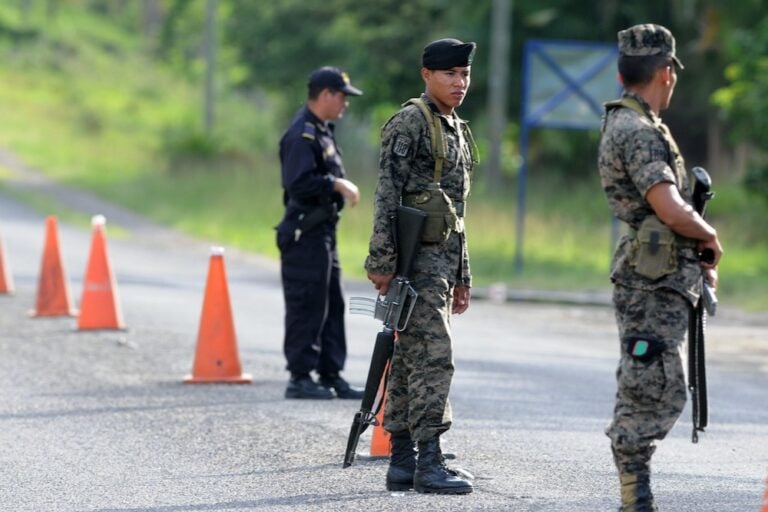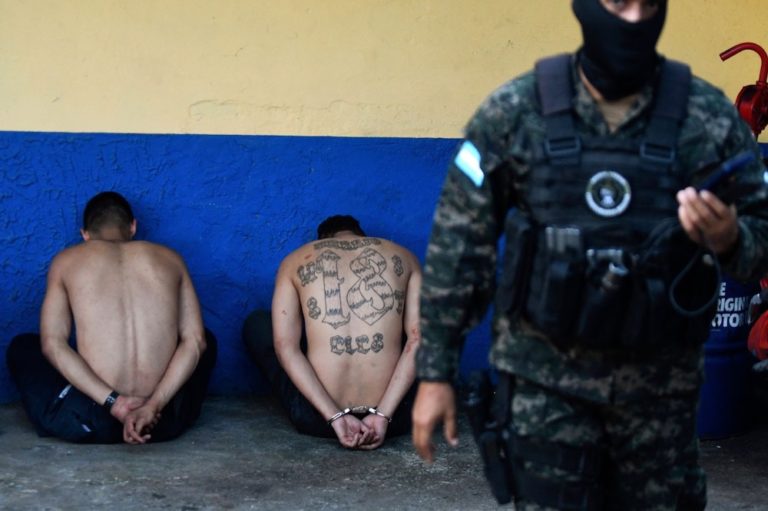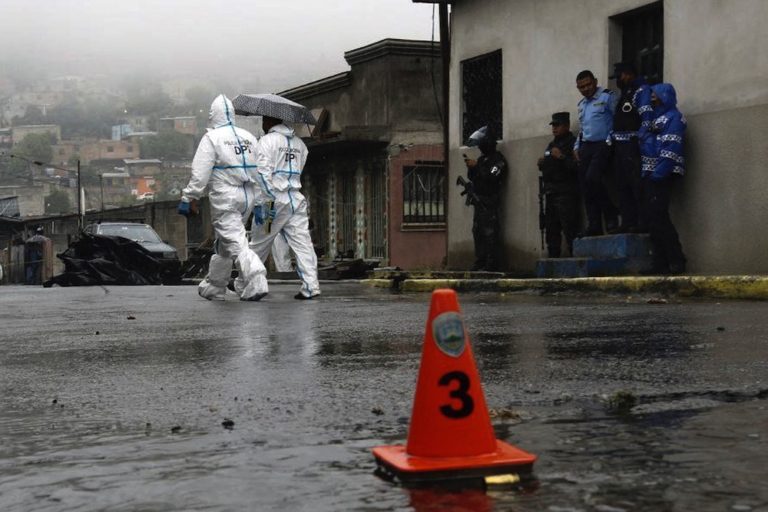Journalists Julio Ernesto Alvarado and Dina Meza have been subjected to intensified harassment in recent months, reports PEN International. The organization calls on the Honduran authorities to overturn Alvarado’s conviction and sentence for criminal defamation.
Journalists Julio Ernesto Alvarado and Dina Meza have been subjected to intensified harassment in recent months, says PEN International. The global organisation of writers called on the Honduran authorities to overturn Alvarado’s conviction and sentence for criminal defamation – which the organisation believes may be politically motivated – to investigate death and other threats made against both journalists and to afford both the full protection of the law.
The harassment has risen since the November 2013 general elections that saw Juan Orlando Hernández elected President of Honduras. In December Alvarado was sentenced on appeal to a 16-month prison sentence and a ban on working as a journalist for alleged criminal defamation and has since received threats, while Meza, who has protested his sentence, reports being subjected to increased surveillance since late January 2014.
Alvarado is director and presenter of the news programme ‘Mi Nación’ on the opposition TV station Radio Globo, while Meza is an independent journalist and human rights defender who received an Oxfam Novib/PEN International Free Expression award on 16 January 2014. Both feature in Honduras: Journalism in the Shadow of Impunity, a joint report by PEN International, PEN Canada and the International Human Rights Program at the University of Toronto, Faculty of Law, published on 23 January.
Threats and intimidation
In the week commencing 20 January 2014, unknown men with military-style haircuts took photos of Meza with their mobile phones while she was meeting colleagues and friends in public places and followed her afterwards.
Meza has been the victim of harassment and threats since 2006, none of which have been properly investigated. She has been the beneficiary of precautionary measures from the Inter-American Commission on Human Rights since 2006 but these have unfortunately had little effect. She now feels her safety is in jeopardy and has increased her personal security measures.
Alvarado has recently been subject to harassment and threats via his Facebook page and that of Dina Meza, who has made various posts protesting Alvarado’s sentence. One post to Alvarado’s Facebook account dated 7 February threatened him and his family members with death.
Alvarado is no stranger to such intimidation. In March 2013, he was forced to suspend his current affairs programme ‘Medianoche’ on Radio Globo after months of threats and surveillance culminated in a failed assassination attempt. This incident was never investigated despite being reported to the authorities. Alvarado suspects that member of the police or the military may have been involved.
“The message being sent in the case of Julio Ernesto Alvarado is that journalists should turn a blind eye to corruption otherwise we will be sent to prison. This is another attack on freedom of expression and we must take action. […] Such attacks are a sign of what Juan Orlando Hernández’government will be,” commented Dina Meza.
Politically-motivated sentence
On 9 December 2013, the Supreme Court of Justice in the Honduran capital Tegucigalpa sentenced Alvarado to one year and four months in prison for allegedly defaming university dean Belinda Flores, overturning a March 2011 decision that cleared him of the charges. Alvarado was also banned from working as a journalist for the same period.
The case dates back to 2006, when three editions of ‘Mi Nación’ in June and July that year included coverage of Flores’ appointment as dean of the Economic Science Faculty of the National Autonomous University of Honduras (Universidad Autónoma de Honduras – UNAH) and her alleged involvement in influence peddling and falsification of university degrees in a previous post at the university.
Similar allegations had been reported in by the newspaper El Heraldo in May 2006, according to court papers from the December 2013 hearing – which take as proven that Flores was in fact implicated in some wrongdoing.
Flores subsequently accused Alvarado of defaming her in a lawsuit that also included two of the journalist’s sources. The first was Carlos Gustavo Villela, a lecturer in the UNAH’s Economic Science Faculty who appeared as a guest on one of Alvarado’s programmes and spoke about his objection to Flores’ appointment as dean (a position for which he had also unsuccessfully applied) and an investigation which had allegedly revealed her wrongdoing. The second co-defendant was Guillermo Ayes, president of UNAH’s teachers’ union (Asociación de Docentes de la Universidad Autónoma de Honduras – ADUNAH), which had reportedly published a communiqué expressing concern about administrative misdemeanours by Flores.
A court of first instance in Tegucigalpa found all three not guilty on 25 March 2011. However, Flores lodged an appeal on the basis that Article 160 of the Penal Code covering defamation had allegedly been misinterpreted. On 9 December 2013, on the basis of the same evidence, the Supreme Court of Justice upheld the ruling for Villela and Ayes but overturned it for Alavarado, finding him guilty of defaming Flores and sentencing him to a 16-month prison term and ban on practising his profession.
In other words, Alvarado has been held responsible for the alleged defamation by giving air time to the two exonerated teachers, despite the fact that it was they who had actually expressed the offending opinions.
Alvarado intends to appeal the sentence. He has also made complaints to the National Commissioner for Human Rights (Comisionado Nacional de los Derechos Humanos – CONADEH) and the non-governmental organisation Committee of Relatives of the Detained and Disappeared in Honduras (Comité de Familiares de Detenidos Desaparecidos en Honduras – COFADEH).
Alvarado’s prison sentence is reportedly commutable to a fine of 10 lempiras a day or a total of around US$246, meaning that he is unlikely to have to serve the jail term. However, if the sentence is confirmed he will be unable to work as a journalist for the entire 16-month period. A final decision in the case must take place by 9 June 2014.
In the meantime the threat of imprisonment and the work ban seriously compromise his ability to report freely and cover sensitive subjects.
PEN International is seriously concerned that the over-turning of Alvarado’s non-guilty verdict may be politically motivated and calls on the Honduran authorities to acquit him of these criminal charges, which it believes are disproportionate and unjustifiable.
PEN International believes that no writer or journalist should be imprisoned or receive criminal penalties simply for the peaceful expression of their views or practice of their profession and calls for the repeal of criminal defamation laws in all countries.
The UN, OSCE and OAS Special Rapporteurs for freedom of expression and the media have stated: “Criminal defamation is not a justifiable restriction on freedom of expression; all criminal defamation laws should be abolished and replaced, where necessary, with appropriate civil defamation laws.”



